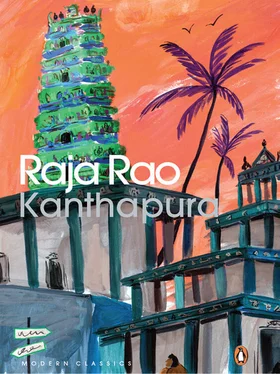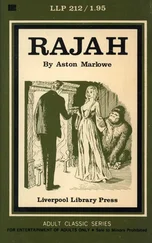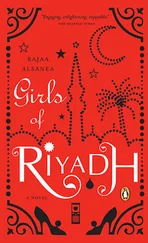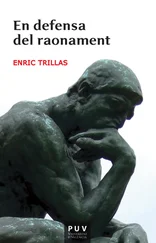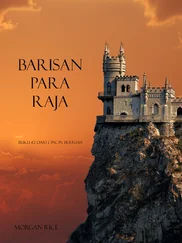Raja Rao - Kanthapura
Здесь есть возможность читать онлайн «Raja Rao - Kanthapura» весь текст электронной книги совершенно бесплатно (целиком полную версию без сокращений). В некоторых случаях можно слушать аудио, скачать через торрент в формате fb2 и присутствует краткое содержание. Год выпуска: 2014, Издательство: Penguin, Жанр: Классическая проза, на английском языке. Описание произведения, (предисловие) а так же отзывы посетителей доступны на портале библиотеки ЛибКат.
- Название:Kanthapura
- Автор:
- Издательство:Penguin
- Жанр:
- Год:2014
- ISBN:нет данных
- Рейтинг книги:3 / 5. Голосов: 1
-
Избранное:Добавить в избранное
- Отзывы:
-
Ваша оценка:
- 60
- 1
- 2
- 3
- 4
- 5
Kanthapura: краткое содержание, описание и аннотация
Предлагаем к чтению аннотацию, описание, краткое содержание или предисловие (зависит от того, что написал сам автор книги «Kanthapura»). Если вы не нашли необходимую информацию о книге — напишите в комментариях, мы постараемся отыскать её.
Kanthapura — читать онлайн бесплатно полную книгу (весь текст) целиком
Ниже представлен текст книги, разбитый по страницам. Система сохранения места последней прочитанной страницы, позволяет с удобством читать онлайн бесплатно книгу «Kanthapura», без необходимости каждый раз заново искать на чём Вы остановились. Поставьте закладку, и сможете в любой момент перейти на страницу, на которой закончили чтение.
Интервал:
Закладка:
Ratna blew the conch from the top of the promontory, and with the blowing of the conch rose the ‘Satyanarayan Maharaj ki jai! Satyanarayan Maharaj ki jai!’ from Sami’s courtyard, and the throne was lifted up, and we marched through the Brahmin street and the Potters’ street and the Pariah street and the Weavers’ street, and doors creaked and children ran down the steps, and trays were in their hands, and the camphor was lit and the coconuts broken and the fruits offered, and one by one behind the children came their mothers, and behind their mothers their grandmothers and grand-aunts, and people said, ‘Sister, let me hold the torch. Sister, let me hold the sacred fan.’ And shoulder after shoulder changed beneath the procession throne, and the cries of ‘Satyanarayan Maharaj ki jai! Satyanarayan Maharaj ki jai!’ leapt into the air. And somebody said, ‘Let us sing “The Road to the City of Love”,’ and we said, ‘That’s beautiful,’ and we clapped our hands and we sang, ‘The road to the City of Love is hard, brother.’ And hardly were we by the temple corner than policeman upon policeman was seen by the village gate, and they were coming, their lathis raised up, and when they saw it was a religious procession they stopped, and we shouted all the louder to show it was indeed a religious song we were singing, and we came nearer. ‘It’s a religious procession, he, take care!’ says one of them, and Ratna says, ‘Oh yes, we’ll take care,’ and the policemen walked beside us, twisting their moustaches and swearing and spitting and blustering, and Ratna stopped every hundred steps and blew the conch three times, and camphors were lit again, and the coconuts broken, and, ‘Satyanarayan Maharaj ki jai!’ was shouted out into the night air. And the police turned to Lingamma and said, ‘Where are you going?’ and Lingamma said, ‘I do not know.’ And they turned to Madamma and said, ‘Where are you going?’ and Madamma said, ‘The gods know, not I,’ and they went this side and that and tried to threaten Lakkamma and Madamma and Seethamma and Vedamma, but they shouted out, ‘Satyanarayan Maharaj ki jai!’
And at last the police inspector came, and this time he was on foot, and a policeman followed him, lantern in hand, and he stops the procession and Ratna blows the conch three times and says, ‘Stop!’ and we stop, and he says to Ratna, ‘Where do you go?’ and Ratna says, head up, ‘Where the gods will,’ and he says, ‘Which way do your gods will?’ and he twists his face and laughs at his own joke, and Ratna says, ‘Where evil haunts.’—’You will get a nice two years, my nice lady.’—’So be it.’ And now, ‘Satyanarayan Maharaj ki jai!’ and she gave three long blasts with her conch.
And as we began to march, it was not ‘Satyanarayan Maharaj ki jai!’ that came to our throats, but ‘Vandè Mataram!’ and we shouted out, ‘Vandè Mataram — Mataram Vandè!’; and then suddenly from the darkened Brahmin street and the Pariah street and the Weavers’ street and the lantana growths came back the cry, ‘Mahatma Gandhi ki jai!’ and the police were so infuriated that they rushed this side and that, and from this courtyard and that garden, from behind this door and that byre, and from the tops of champak trees and pipal trees and tamarind trees, from beneath horse carts and bullock carts, men in white jumped out, men at last from the city, boys, young men, householders, peasants, Mohammedans with dhotis to the knees, and city boys with floating skirts and Gandhi caps, and they swarmed around us like veritable mother elephants round their young. And we felt so happy that we cried out, ‘Vandè Mataram!’ and with the groan of the boys and the cry of children under the lathi blows, from the Karwar road to the Kenchamma hill, voice upon voice rose, and from hill to hill like wildfire blared, ‘Mataram Vandè!’ And some near us stamped the earth and cried, ‘Inquilab Zindabad — Inquilab Zindabad!’ And ‘Inquilab, Inquilab, Inquilab,’ rapped out someone clear and fierce through the starlit air, and ‘Zindabad’ we roared back, and such a roar swept through the streets and the valley that we said there are more men still, ten and tens of thousands of men, and the policemen’s curses were lost in the ringing of bells and the blast of the conch. And then somebody behind us blew the long horn, and it twirled up and swung forth and clattered against the trees of the Skeffington Coffee Estate, and another and another curled up, and yet another that arched over the Kenchamma hill and the Bebbur mound and trailed away snaking up to the Blue Mountain tops. And we said more and more men will know of our fight, and more and more of them will come, and we clapped our hands and we stamped the earth and we marched on, and we shouted, ‘Inquilab, Inquilab Zindabad!’ and between two shouts we asked the city boys, ‘Where are we going, where?’ and the city boys said, ‘Why, to the barricades.’—’And what barricades?’—’Why, the Skeffington barricades,’ and a neighbour would pinch us and say, ‘Say Mahatma Gandhi ki jai!’ and we cried out, ‘Gandhi Mahatma ki jai!’ and the city boys would say, ‘We’ll take it, sister, we will. In Peshawar the whole city. ’ and lathi blows fell on us, but ‘Inquilab Zindabad!’ was the only answer we gave.
And suddenly, across the Bebbur mound, we saw shapes crawl along and duck down and rise up, and we said, ‘Perhaps soldiers — soldiers,’ but, ‘In Peshawar,’ says the city boy, ‘you know they would not shoot,’ and we said we too are soldiers, and we are the soldiers of the Mahatma, and this country is ours, and the soldiers are ours and the English they are not ours, and we said to ourselves, a day will come, a day when hut after hut will have a light at dusk, and flowers will be put on the idols, and camphors lit, and as the last Red-man leaps into his boat, and the earth pushes him away, through our thatches will a song rise like a thread of gold, and from the lotus naval of India’s earth the Mahatma will speak of love to all men. — ’Say Mahatma Gandhi ki jai!’—’Inquilab Zindabad, Inquilab Zindabad!’— and the police lathis showered on us, and the procession-throne fell, and the gods fell and the flowers fell and the candelabras fell, and yet the gods were in the air, brother, and not a cry nor lamentation rose, and when we reached the village gate, suddenly from the top of a pipal someone swings down and he has a flag in hand, and he cries out:
Lift the flag high,
O, lift the flag high,
Brothers, sisters, friends and mothers,
This is the flag of the revolution.
and the police rush at him, and he slips in here and he slips out there and the boys have taken the flag, and the flag flutters and leaps from hand to hand, and with it the song is clapped out:
O lift the flag high,
Lift it high like in 1857 again,
And the Lakshmi of Jhansi,
And the Moghul of Delhi,
Will be ours again.
and there is a long cry, ‘Down the hedge, here,’ and we rush down the aloe lane, and the police find they are too few, and they begin to throw stones at the crowd and the crowd gets angry, but the boys shut them up and sing:
O fire, O soul,
Give us the spark of God-eternal,
That friend to friend and friend to foe,
One shall we stand before Him.
And suddenly there is an opening in the hedge and the gaslights and the coolies and the barricades are seen, long barricades that lie like an elephant’s carcass under the starlight, and men stand by them, and behind them the trucks, and behind the trucks the wide-eyed lantern of the Skeffington bungalow, and down below, in Satanna’s triangular field men are still working, the coolies from the city are still reaping. And all of a sudden we cry out, ‘Gandhi Mahatma ki jai!’ and they look at us and stop their work but they do not reply, and we shout the louder, ‘Vandè Mataram! Inquilab Zindabad Mahatma Gandhi ki jai!’ and the police, seeing the crowd out of their hands, kick and twist the limbs and bang more fiercely, and Seethamma is thrown upon the cactuses and Vedamma and Kanakamma after her, and we could hear their wailings, and we run to them and pull them up, and we run down the lane and the field-bunds and we come to the canal, and the women cry out, ‘We cannot go! We cannot go!’ and the men drag them and the police push them in, and the pebbles slip under our feet, and saying, ‘Ganga, Jumna, Saraswathi!’ we look up into the wide, starry sky, and there is something in the air resonant like the temple bell, and the bell rings on and on, and we wade through the canal and we sing, ‘That friend to friend and friend to foe,’ and the procession still moves on — and suddenly, by Rangamma’s coconut-garden field, from behind the waving, brown paddy harvest, there is a cry sharp and clear, then a rasping hiss as though a thousand porcupines had suddenly bristled up, and we see rising from behind the ridge, ten, twenty, thirty, forty soldiers heads down and bayonets thrust forth. We whirl in shrieks and shouts and yells, and we leap into the harvests. And a first shot is shot into the air.
Читать дальшеИнтервал:
Закладка:
Похожие книги на «Kanthapura»
Представляем Вашему вниманию похожие книги на «Kanthapura» списком для выбора. Мы отобрали схожую по названию и смыслу литературу в надежде предоставить читателям больше вариантов отыскать новые, интересные, ещё непрочитанные произведения.
Обсуждение, отзывы о книге «Kanthapura» и просто собственные мнения читателей. Оставьте ваши комментарии, напишите, что Вы думаете о произведении, его смысле или главных героях. Укажите что конкретно понравилось, а что нет, и почему Вы так считаете.
